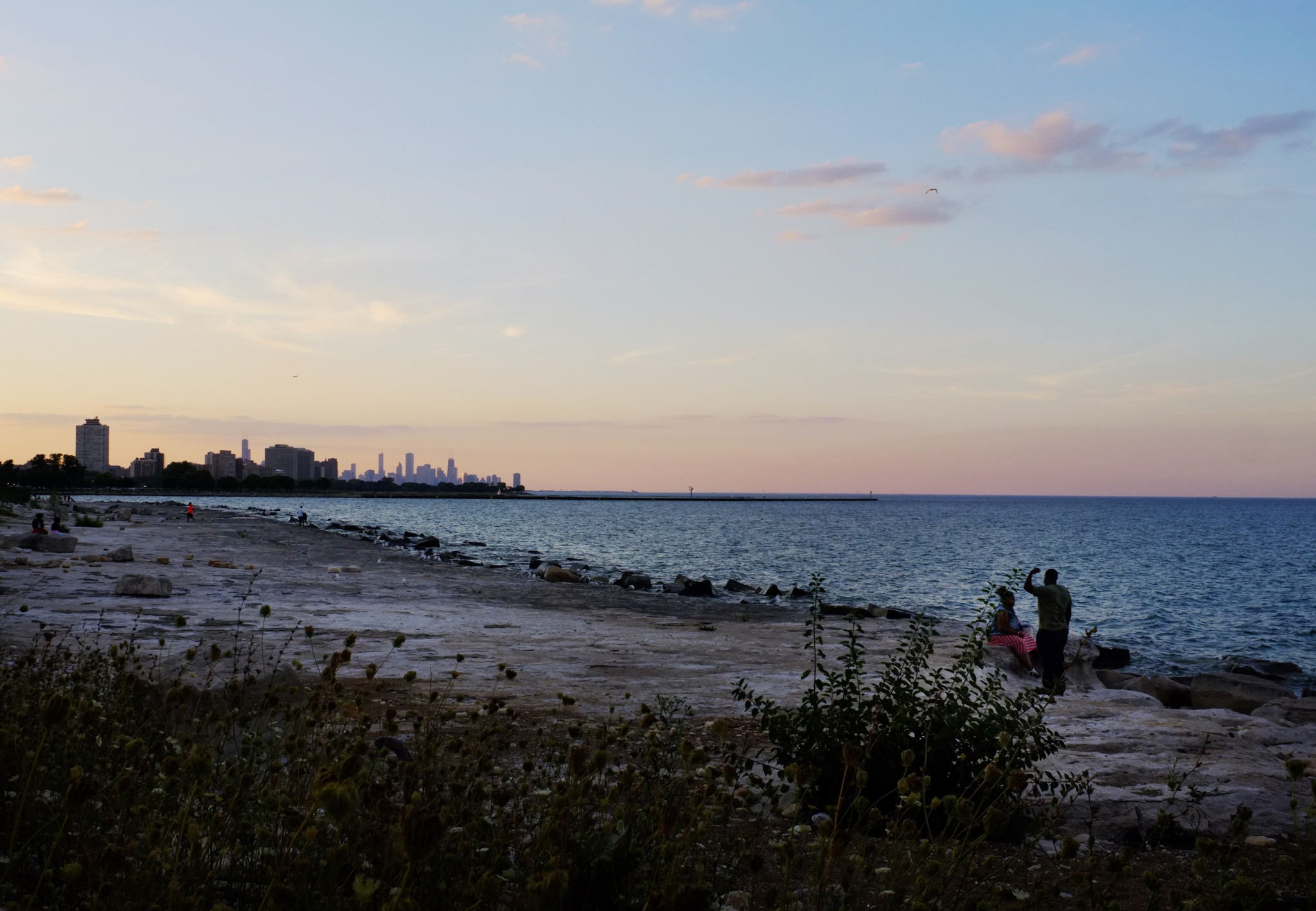It is no secret that Washington Park and Woodlawn have seen better days. Economic depression and consistently declining populations since the 1970s have led to collective downturn. Currently, the neighborhoods are caught in the crossroads of the lingering memory of a thriving local culture and middle class and the issue of how exactly revival can be effectively stoked. Two newly fashioned courses point to answers: one fostered by communal organizations of both neighborhoods, and the other led by the University of Chicago.
For Naomi Davis, founder of the West Woodlawn organization Blacks in Green (BIG), the key to revival is a systematic restructuring, one headed by principles of self-sustainability. Davis started BIG back in 2007, after having arrived at “a state of inconsolable despair about the condition of the community,” she said. Her realization that stable middle-class black communities had virtually disappeared from Chicago fueled her research, eventually leading to her understanding that there was a deeply rooted connection between healthy economic states and the climate crisis.
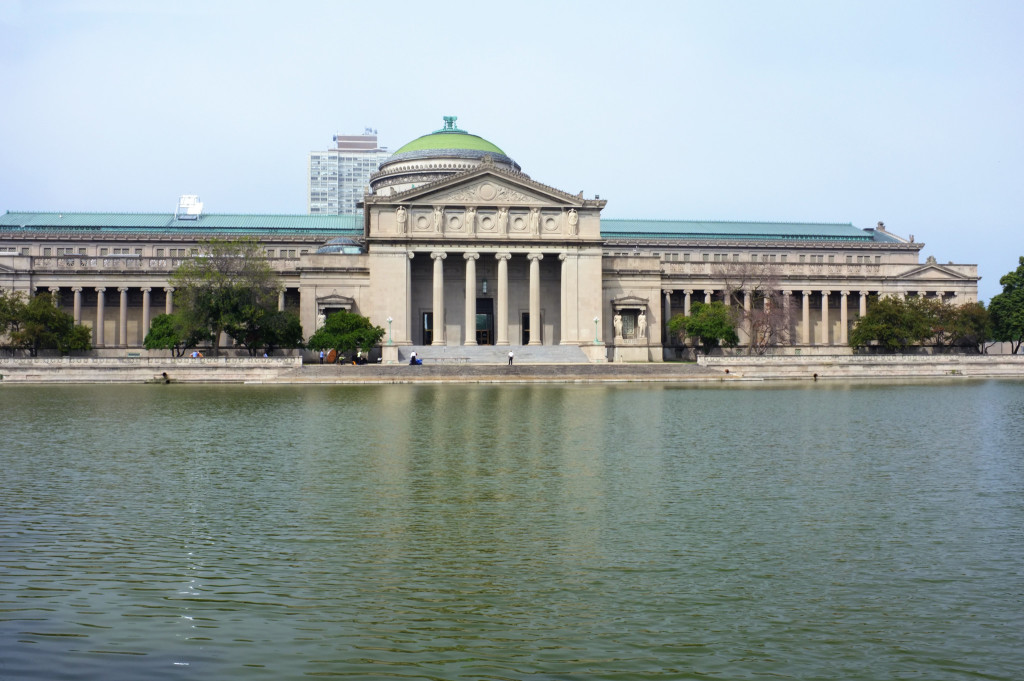
Since then, Davis has created eight principles of green community building and begun to make them reality with her work on the West Woodlawn Botanic Gardens and Village Farm Initiative as well as a number of other ongoing projects. “It’s designed as an opportunity for neighbors to engage together as stewards of the land, collaborating on how gorgeous and green the infrastructure of our walkable village can be,” she said. Creating community gardens, growing food, and planting trees: all this is just a small portion of what Davis envisions as an entirely self-sustaining ecological economy where households can be fed, people can be trained, and jobs and businesses can be created.
Hoping communal acknowledgment can turn into accountability on the part of every resident, Davis thinks her principles of sustainability can be used as a template for any community in the country. “Only a whole-system solution can transform a whole-system problem,” she said.
This past spring, it was announced that the Obama Presidential Center would be constructed at one of the two sites proposed by the UofC, in either Washington Park or Jackson Park. Many residents have criticized the center as another opportunity for big business investors to snatch up property and profit greatly, making the center largely useless to its future neighbors. While Davis acknowledges that this wariness is warranted, she maintains that it all depends how this opportunity is used and is hopeful that the Center can serve residents first. “We have the opportunity to not only avoid displacing the black middle class from these communities, but shine a beacon for other cities about how the redevelopment of the black community can be brilliant, innovative, vibrant, and wealth-building.”
Davis gives a compelling case for what an individual is capable of accomplishing in one community, block by block, with the help of community organizers and everyday neighbors alike. Motivated by the urgency of a human-made global crisis and loyalty to one’s place in history and the natural world, BIG helps each individual become an agent of change and sustainability—giving the opportunity for a higher standard of living for all those who may seek it and are willing to work to attain it. (Emiliano Burr di Mauro)
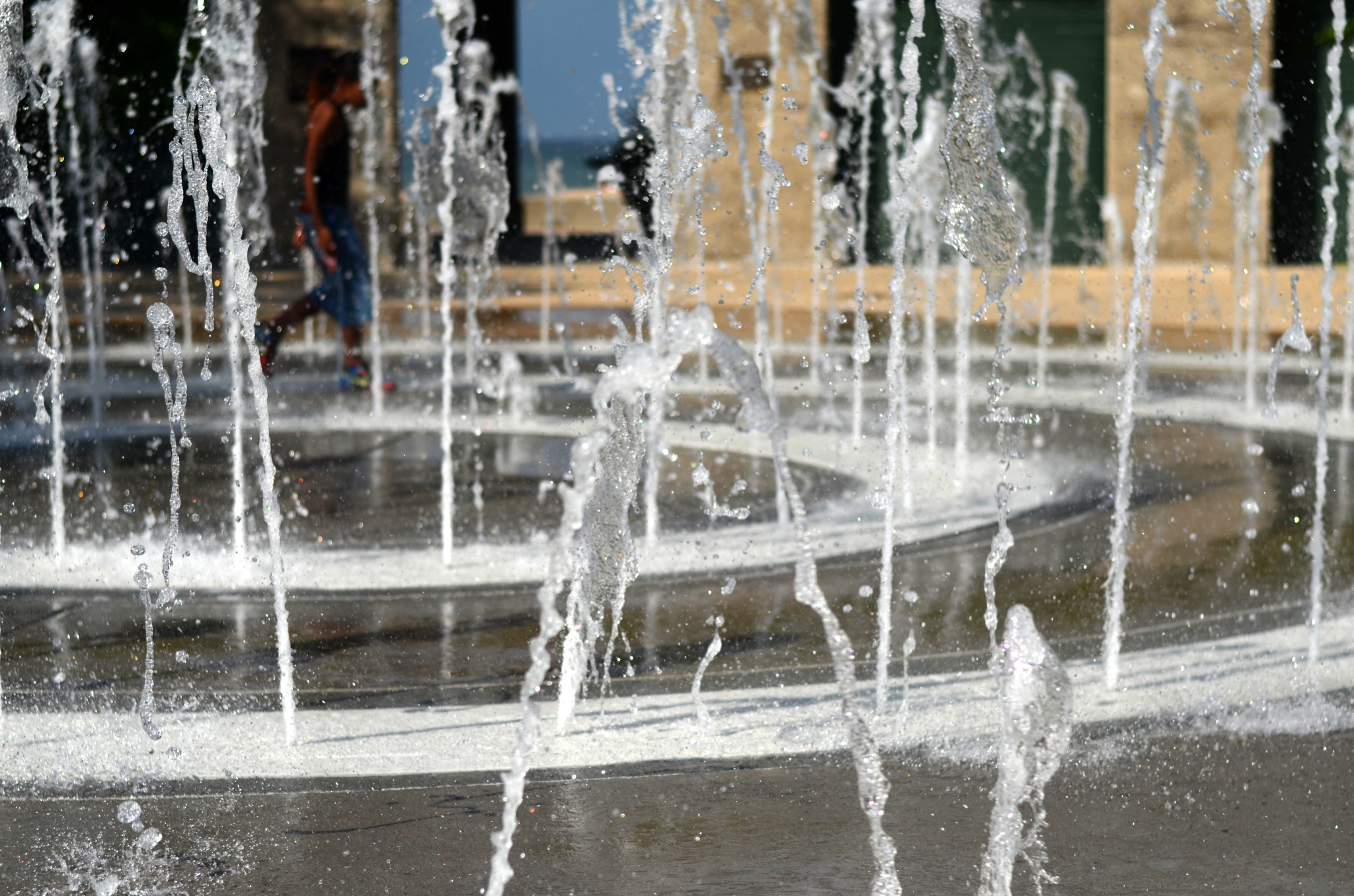
Best Home Cooking Away From Home
Ms. Lee’s Good Food
Just two blocks from the Green Line stop sits a small, quiet canteen of colossal comfort-food proportions. Ms. Lee’s Good Food, marked only by a tricolor neon sign, has supplied Washington Park with home cooking for the past seventeen years. Lee Hogan’s food, and Hogan herself, are forces well known in and outside the neighborhood. On any given day, the Mississippi native and thirty-year Chicagoan can be found stirring, chopping, and cooking while saying hello to any new or familiar face that comes through the door. She also always leaves time to tell you that her herbal chicken with dressing and bread pudding is the best around.
Whether patrons eat her food at work, at home, or just sitting on the stoop, Ms. Lee’s undeniably brings people back to their childhood kitchen and gives their grandmas a run for their money. Her food may fall under many categories of cuisine, but Ms. Lee resists the term “soul food,” preferring “comfort food” because, she says, it’s not about what kind of food it is or what flavors are involved, but what the food can do for those who consume it. And whether it’s providing an unlikely tinge of nostalgia or the quick satisfaction of intense hunger, her food can do quite a bit. That being said, the flavors and aromas are of the upmost importance, and Hogan has perfected her concoctions for the past two decades after learning a majority of them from her mother and grandmother. Cooking has been far more than a profession for Ms. Lee, who says that it has always been a standard in her life, and something therapeutic for her. Through her food, she passes on that restorative feeling to each customer who walks through her doors.
Whatever time or space Hogan brings you back to, her restaurant is rooted in 2015, in Washington Park. Ms. Lee has seen her neighborhood slowly transform, and she believes that relief for the depressed landscape of businesses and residents in the neighborhood can only be achieved through community interconnectedness of all groups in the surrounding area. She is also a big proponent of the UofC-led Obama Presidential Center project, and believes it could bring positive change to both Woodlawn and Washington Park. As for how else positive change might be achieved, bringing people together with food and a dependable, friendly face is a good way to start.
Ms. Lee’s Good Food, 203 E. Garfield Blvd. Tuesday–Sunday, 11–8pm; closed Mondays. Entrées $11-$15. (773) 752-5253 (Emiliano Burr di Mauro)
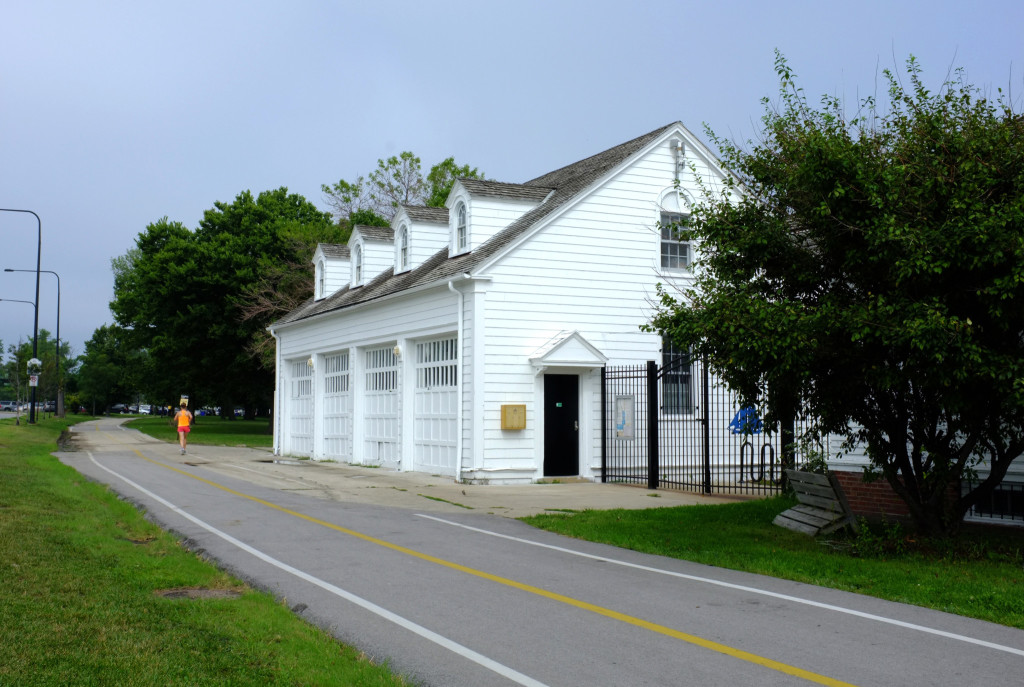
Best Jam Session
Coltrane Conservatory for the Arts
You may hear drumbeats—or, if you’re lucky, the smooth riffs of an improvising pianist or saxophonist—slip out from under the glass-paneled door of Coltrane Conservatory of the Arts and onto the 6300 block of Cottage Grove. Situated under the historic Woodlawn Ballroom, where some of the jazz greats of the twentieth century came to play, Coltrane Conservatory has offered lessons for the last two years both to those whose experience is limited to the air guitar and those who can explain the difference between a D-flat minor chord and a D major seventh in their sleep. The man behind the Conservatory is Joe Pace III, former Navy sailor, later CPS teacher, and avid jazz musician. He’s quick to remind visitors that the other instructors, volunteers, are the backbone of the Conservatory, but Pace himself, calm and attentive, can be found in the studio around the clock. If he’s not teaching a percussion student, he’s brainstorming how he can expand the Conservatory’s tutoring program and its in-the-works recording studio, as well as what sort of community events the Conservatory might host (in the past, these have included jazz jam sessions, poetry readings, and events for Black History Month). Don’t be discouraged by Coltrane Conservatory’s sparse online presence: stop by and pull up one of the many folding chairs. Whether it’s an evening jam session or an early afternoon drum lesson, you’re bound to hear something pleasing to the ears.
Coltrane Conservatory for the Arts, 6353 S. Cottage Grove Ave. Monday-Friday, 9-5pm; Saturday, 10am–4pm; closed Sundays. $15/hr for saxophone and guitar, $12.50/hr otherwise. Free drum program on Sundays with enrollment fee (negotiable). (773) 891-1875. coltraneconservatoryeducation.org (Emeline Posner)
Best Place to Get Your Groove On
Stepping Lessons at the Grand Ballroom
If you have been meaning to learn some smooth dance moves and are down to get down on a Tuesday for just three dollars, check out the Chicago-style Steppin’ Lessons at the Grand Ballroom. Although the start time is advertised as 7pm, plan to get there a little before then to be sure not to miss a moment of instruction. Showing up a bit early to chat can’t hurt either: any case of nerves you might have will be eased, as you’re sure to make a few new friends. Bobby, one of “The Real Groove Masters,” instructs the weekly lessons for the group of newcomers or “new-new”; the dance organizers decline to use the term “beginners” because they believe everyone is, or can be, on the same level of expertise—some just happened to start stepping earlier than others. Within an hour, Bobby will make sure you’re doing an eight count and spinning around while offering gems of advice like, “If you’re watching your feet, you’re telling yourself you can’t do it.” Once you’ve mastered the basics, you can advance from learning with the “new” group to dancing with the vets. Come for the lessons, but make sure to stay for the cash bar and free dancing. While the event can feel like a family affair (one attendee whom I met had two aunties and her parents present), you’re bound to feel at home by the end. As another stepper said to me, “It’s like family here, baby.”
The Grand Ballroom, 6351 S. Cottage Grove Ave. Tuesdays, 7–8:30 pm. $3 entry fee, free dancing afterwards. (888) 498-0884. grandballroomchicago.com (Jennifer Hwang)
Best Really Big Park
Jackson Park
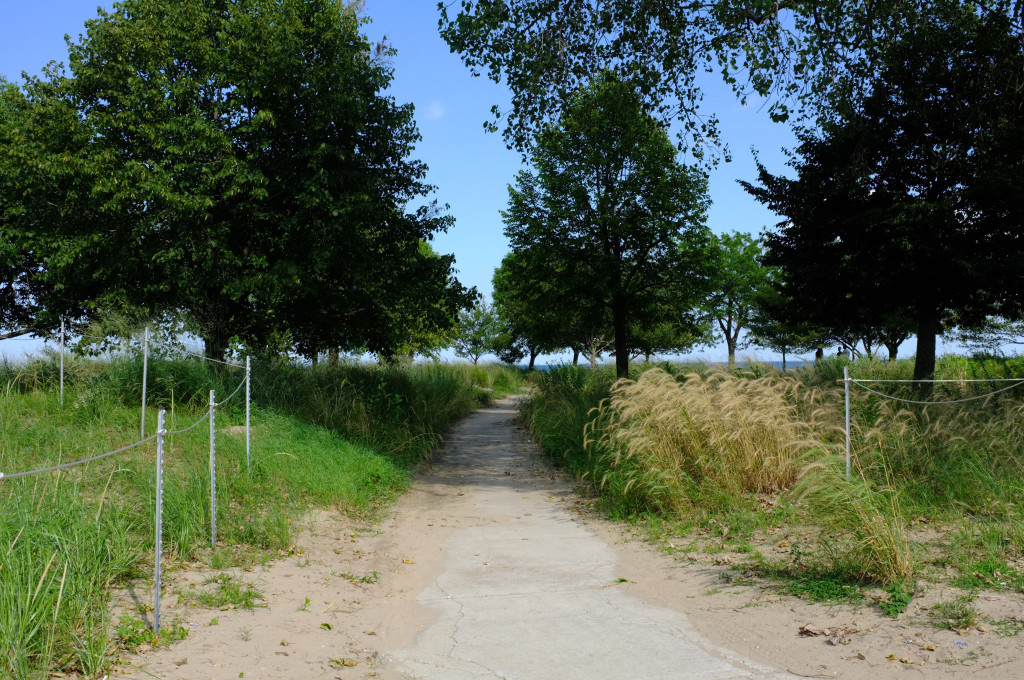
Spanning over five hundred acres and stretching from Stony Island to the lakefront, Jackson Park was once the site of the 1893 World’s Columbian Exposition. Since then, the park has evolved into its present day collection of harbors, trails, forests, beaches, and lagoons. Perhaps its sheer size is the reason why most of the area is curiously unknown to many, even those from the surrounding community. This unassuming landscape combines a number of unexpected opportunities for recreation, leisure, and above all else, exploration—for anybody willing to travel by foot, bike, or perhaps even boat!
Jackson Park, 6401 S. Stony Island Ave. Park hours: Monday–Sunday, 6am–11pm; fieldhouse hours: Monday–Saturday, 9am–10pm, closed Sunday. (773) 256-0903. chicagoparkdistrict.com/parks/jackson-park (Emiliano Burr di Mauro)
Best Semi-Famous Church Choir
Life Center Church of God in Christ
In both Woodlawn and Washington Park, many neighborhood churches serve as fixtures of faith and neighborhood involvement while preserving their lengthy histories. Nestled in the widespread system of these close-knit congregations is the Life Center Church of God in Christ, where the voice of Pastor T. L. Barrett Jr. contributes to the conscience of the community. Barrett has been a pastor for over forty years, and in those four decades he has been a champion of the need for social responsibility and economic development, particularly within Washington Park. He bolsters his church’s philosophies through his sermons and the heavenly voices of his choir: in 1971, Barrett and the Youth for Christ Choir self-released an album that went on to commercial success. Whether for the sights, the celestial sounds, the history of the church, or the sermon, the Life Center Church is certainly worth a visit.

Life Center Church of God in Christ, 5500 S. Indiana Ave. Sunday Service at 10:30am. Free and open to the public. (773) 288-1700. lifecentercogic.org (Emiliano Burr di Mauro)
Best Island Cuisine and More
Jamaican Jerk Spice
At Jamaican Jerk Spice—where the name itself acts as a pretty promising checklist for the cuisine—there are no unnecessary gimmicks, but definitely a few surprises. Upon entering the small dining area, it is evident that there is far more in store than the basic associations with those three little words. One is confronted with large menu boards covered with items familiar and beyond: the offerings, which include everything from jerk chicken and catfish to curry goat and ox tail, are (for the most part) recognizable to Caribbean cuisine veterans and enticing to newcomers to island fare. The food doesn’t concern itself with any sort of unnecessary devices, and the humble atmosphere does not rely on hackneyed decor. You may have to wait a bit, but relax, man: relish the fact that you’re about to enjoy a meal that was made using every minute you waited.
Jamaican Jerk Spice, 6500 S. Cottage Grove Ave. Monday–Thursday, 11am-9pm; Friday–Saturday, 11am–10pm; Sunday, 12pm-8:30pm. Entrées $10-$15. (773) 955-4333. jamaicanjerkspicechicago.net (Emiliano Burr di Mauro)


